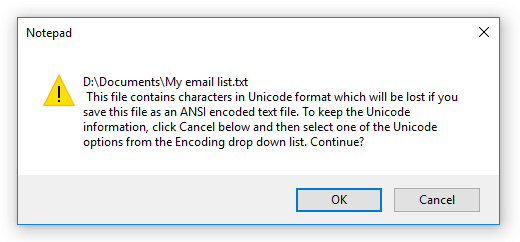Dealing with international email addresses is not a simple task. An email address can often be misspelled or simply written in a foreign language. And the simple fact that many international email addresses are foreign to us means that we are unable to recognize when something is wrong.
What is an international email address?
An international email address is an email that contains characters which do not exist in the US ASCII (American Standard Code for Information Interchange) character set, and that thus requires the more modern and feature-rich UTF-8 encoding to be represented correctly.
In fact, up to until late 2008, the IEFT standards allowed email addresses with characters belonging to the US ASCII set only: people who wished to use an Arabic, Cyrillic, Chinese or Hindi symbol – as well as any other character, diacritic or symbol in any other alphabet – would then had to fall back to use transliterations using characters from the latin-based US ASCII set.
Nowadays, creating email addresses using non-ASCII characters is fortunately possible, as many email servers support the newer IETF standards. People from Asia, Russia and Mid-East countries, for example, can now use their native name as their mailboxes safely with a big portion of the email service providers out there.
For example, a Russian may now create an email address like дерек@екзампил.ком using the Cyrillic alphabet, while he had to use a transliteration like derek@example.com in the past. The same also applies to users from non-English-speaking European countries whose desired addresses might contain diacritics (e.g. André or Płużyna).
At Verifalia, we use cutting-edge technologies which understand international email addresses: our email verification service can validate both international mailboxes as well as international domain names, automatically.
If you have international email addresses in your email list and you want to validate your list, we have your back!
Beside all the features offered by us, by using our email validation service you can now validate international email addresses (non-ASCII encoding). We support Unicode UTF-8 encoding for both the domain part (via punycode) and for the local part by way of the 8BITMIME and UTF8SMTP extensions to the standard SMTP protocol (where supported by the target mail exchanger).
If the mail exchanger does not support international mailbox names, we return the following status code:
ServerDoesNotSupportInternationalMailboxes - Invalid email address, the external mail exchanger does not support international mailbox names. To support this feature, mail exchangers must comply with RFC 5336 and support and announce both the 8BITMIME and the UTF8SMTP protocol extensions.
What is Punycode?
Punycode is an encoding scheme, which converts the strings of Unicode (UTF-8) into ASCII characters and vice versa. Punycode is also used to represent International Domain Names (IDNs) with the limited character set (A-Z, 0-9) supported by the domain name system.
Does encoding matter when saving a file?
The answer to his question is simple: it does. I’ll give you an example: If you type дерек@екзампил.ком in Windows Notepad and save the document using the ANSI encoding (which defaults to US-ASCII in operating systems using English as their language), it will show this warning message:

If you proceed, the file will be unreadable if you open it again. We strongly recommend you to save your email lists using UTF-8 encoding - especially if they contain international email addresses.
The international email validation also works automatically with our API, as it accepts JSON data encoded with the UTF-8 charset only.
Ready to start validating your email list? Sign up now!

